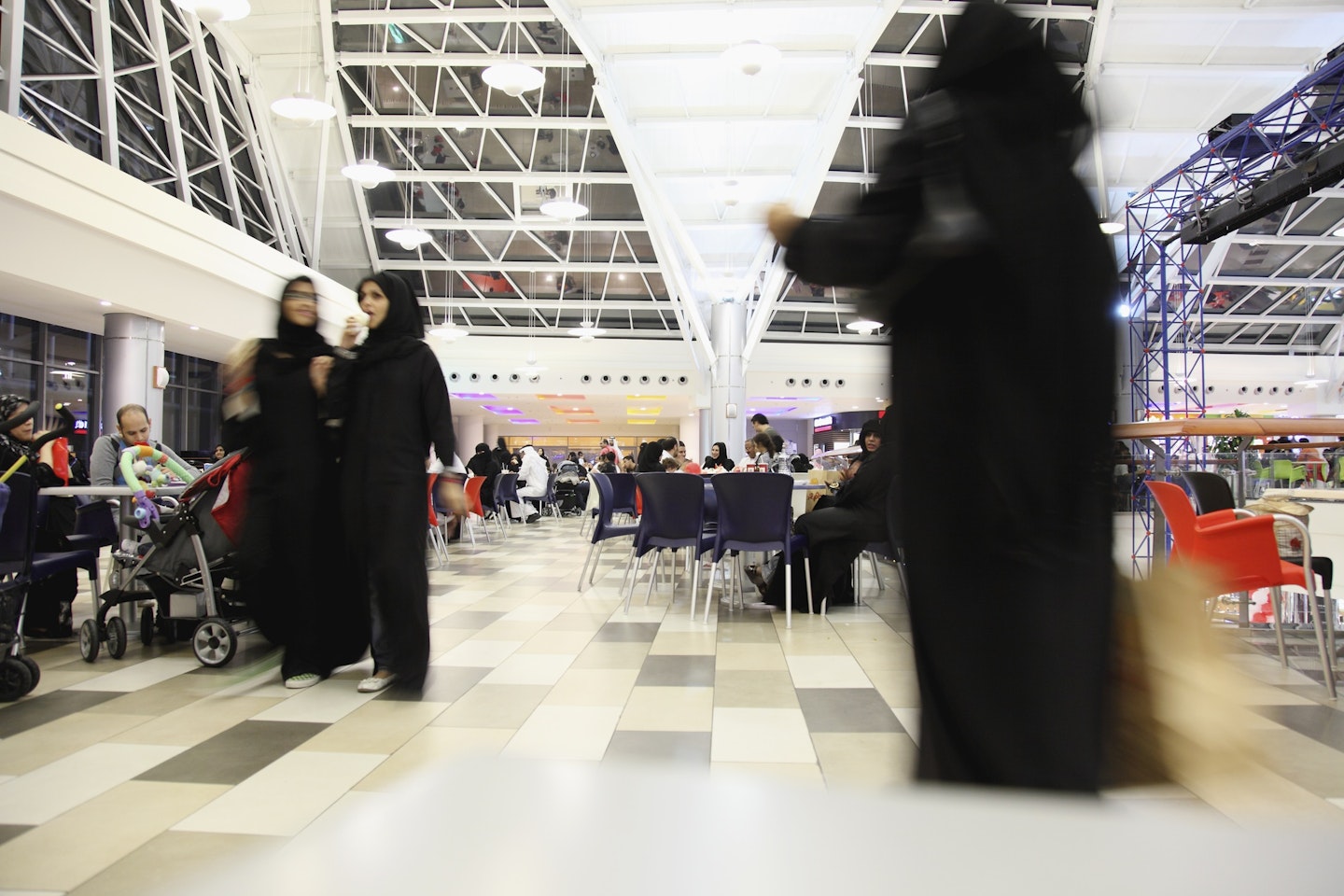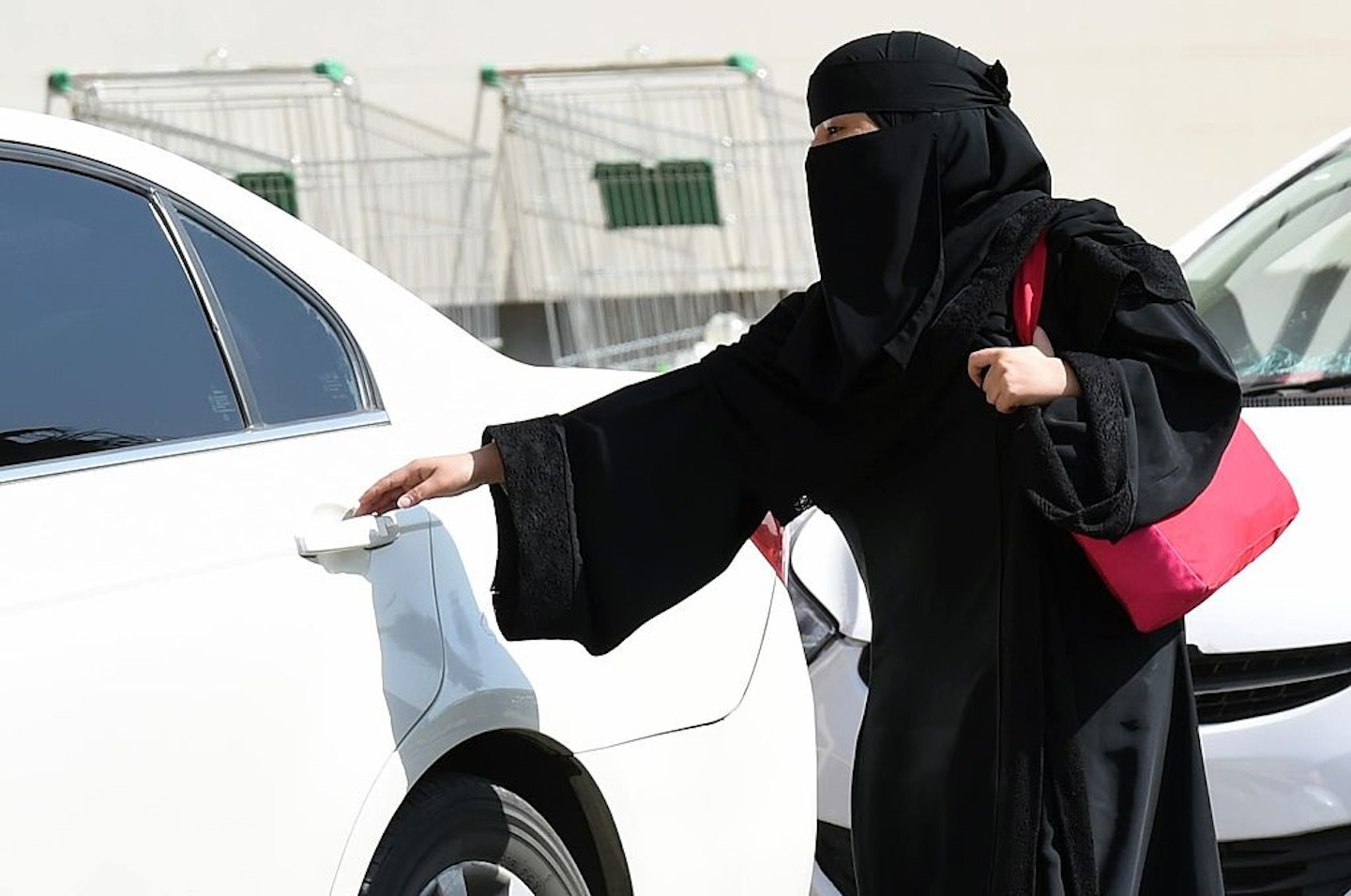A young woman posted a video of herself on Snapchat this weekend, wearing a miniskirt and crop top while walking around a historic fort.
So far, so unremarkable – apart from this woman, a model known only as “Khulood”, happens to live in one of the most repressive regimes in the world; Saudi Arabia.
The female population of this ultra-conservative Muslim kingdom must cover themselves in an ankle-length garment known as an abaya when they appear in public.
So, Khulood’s video (below) is a risky statement indeed – the equivalent of throwing a match on the bonfire in a place where fundamental women’s rights are a fraught political firebomb.
By replicating something that women all over the world do every day, Khulood has drawn a slew of vitriolic hatred on social media. While some have celebrated her bravery, thousands more have called for her to be punished for her apparent insolence.
“I was shocked to see those angry, scary tweets,” writer and philosopher Wael al-Gassim told the BBC.
"I thought she had bombed or killed somebody. The story turned out to be about her skirt, which they did not like.”
Worse still, Khulood is now being investigated by the country’s notorious religious police, the Committee for the Promotion of Virtue and the Prevention of Vice, and may very well end up going to jail.

The incident is yet another frustrating setback for Saudi women, who have spent years struggling to assert small freedoms against the might of religious authorities intent on stifling their voices.
Saudi Arabia is the only nation on earth where women are prohibited to drive, and the only country that treats women like children – requiring adult females to live under the supervision of a legally recognised male guardian (a husband, father or another male family member).
Women here were only granted the right to vote in December 2015, nearly a century after a similar victory in the UK.
In a cruel twist of irony, they required male chauffeurs to assert their democratic rights, unless they happened to live within walking distance of a polling station. Little wonder male voters outweighed females by 10 to 1.

That such a draconian system exists in 2017 is bad enough. It’s like the real-life version of The Handmaid’s Tale.
But, to add insult to injury, Britain – a voice that could bring instrumental pressure to bear on such a situation - sits to one side and does absolutely nothing.
Our cosy trade relationship with Saudi Arabia, built around a series of lucrative arms deals, means that British diplomats will never have the backbone to call out their Saudi equivalents.
A million women could be jailed for wearing a skirt, punished for being raped or even stoned to death for adultery, and the UK would stand by – awkwardly humming and quietly averting our eyes.
Our flagrant self-interest in not rocking the boat with one of the world’s biggest oil producers has resulted in a political cowardice that is quite staggering.

Of course, the UK’s official line is that we work with our “friends” (read: trading partners) in order to “engage” them (continue reaping the rewards).
Just like reams of politicians before her, Theresa May has embraced this approach. “I hope that people who see me as a woman leader will see what women can achieve and how women can be in significant positions,” is her rather lame, side-stepping response to why we continue to humour the Saudi government over women's rights.
Very slowly, change is coming to Saudi Arabia – and the hope of social reforms lies like a glistening jewel on the horizon.
Eyewitness accounts from those living in the kingdom suggest that the over-zealous religious police are no longer as visible on the streets as they once were.
Last year, the newly appointed Crown Prince Mohammed bin Salman introduced Vision 2030, a reform bill in which increasing the participation of women in the workplace is a key goal.
Part of this involves an overhaul of the guardianship rule that so drastically restricts women’s ability to work, travel, study or even undergo medical procedures in Saudi Arabia.

Progress, however, is slow in a country where conservative clerics still wield huge influence. And for every inch forward, something happens like the miniskirt furore to tighten the leash around women once more.
The very least Britain can do in such a torrid environment is to stop putting profit over principle and start actively and loudly voicing our opposition – either via diplomatic channels or, if needed, with trade sanctions and expulsions.
Until we do, women will continue to be arrested and killed for self-expression. And that is a stain on our character as much as the Saudi government’s.
Read More: "Why I Defend The Right Of Women To Grow Their Body Hair"
